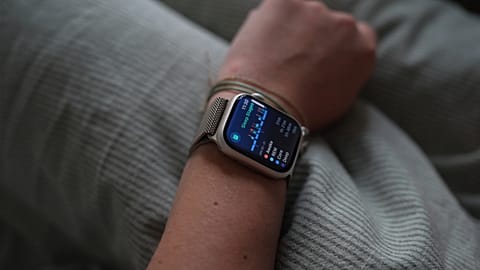The new blood test could make early, accurate diagnosis far more accessible and affordable, potentially speeding up treatment and support for thousands of families.
A landmark trial has begun testing whether a simple blood test could replace invasive and expensive procedures in diagnosing Alzheimer’s disease - a condition that affects millions worldwide.
Led by researchers at University College London in the United Kingdom, the trial has started recruiting patients through memory clinics across the country.
It will test whether measuring levels of the protein p-tau217 in the blood can provide an early and reliable diagnosis of Alzheimer’s, helping patients and doctors make faster, better-informed decisions about care.
Currently, confirming a diagnosis of Alzheimer’s usually relies on brain scans or lumbar punctures, which are both expensive and difficult to access.
And according to Alzheimer’s Research UK, just 2 per cent of people diagnosed with the disease currently receive one of these “gold standard” tests.
"Revolutionising the way we diagnose dementia"
"After decades of research, we now have a blood test for Alzheimer’s disease that is backed by strong scientific evidence and provides comparable information to other gold-standard diagnostic tests such as PET scans and lumbar punctures yet is far more accessible, and cheaper," said professor Jonathan Schott, Chief Medical Officer at Alzheimer’s Research UK and co-lead of the trial.
The trial will involve 1,100 participants across 20 NHS centres. Half will receive their blood test results within three months, while the other half will receive them after a year. Researchers will then measure whether early access to results speeds up diagnosis, changes clinical decision-making or affects the quality of life of the patients.
For many families, the prospect of a quicker route to diagnosis offers hope. Michael White, who cares for his wife Kathryn, said their journey to diagnosis took two and a half years. "A blood test like this would have helped to make a diagnosis right at the start and would have made a real difference to us,” he said.
The study is part of the Blood Biomarker Challenge, a multi-million-pound programme supported by Alzheimer’s Society, Alzheimer’s Research UK and players of People’s Postcode Lottery.
If the trial is successful, it could pave the way for blood tests to become a standard part of dementia care on the NHS.
According to Alzheimer’s Disease International, there are over 10 million new cases of dementia every year, which works out to one new case every 3.2 seconds.
And in 2020, more than 55 million people were living with dementia globally, a figure expected to nearly double every 20 years, reaching 78 million by 2030 and 139 million by 2050.


















